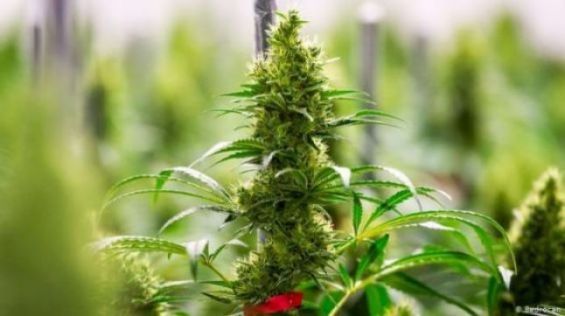The 2019 edition of the International Narcotics Control Board (INCB) report on drugs reveals that Morocco has reported the largest seizures of cannabis and cannabis resin in the region alongside Nigeria.
According to data compiled by the annual report conducted by the United Nations, Morocco seized in 2018 almost 72 tons of cannabis resin and 252 tons of majoun, which is a «consumable product mostly of cannabis but that can also include other drugs, along with puppy seeds and other foodstuff».
Moreover, the INCB report indicates that in June 2019, the Moroccan authorities seized 12 tons of cannabis and 800 kg of cannabis resin. «Another operation carried out two weeks later led to the seizure of 600 kg of cannabis found in sewage pipes in Taghbalt», wrote the same source.
A national multisectoral strategy for the prevention and control of non-communicable diseases
As for cocaine seizures, the report stressed that in 2018 Morocco, Algeria and Angola said that they seized 1.7 tons, 672 kg and nearly 500 kg, respectively. Data shows that the North African Kingdom had the heaviest seizure among the two aforementioned countries in 2018.
«Cocaine trafficking has recently been linked to the activities of numerous organized criminal groups from Colombia, Morocco, Spain and the Balkan countries, most of which are operating out of major European ports», INCB reported.
According to the same source, Morocco has also reported the seizure of other drugs during the same year. In 2018, the country seized more than 45 million tablets of tramadol. «Reported seizures suggest that trafficking of the synthetic opioid in the region remains a major problem among countries in the Sahel and the Maghreb», stressed the annual report.
During the same year, the report indicates that while Nigeria and South Africa sized a few hundred kilograms each of methamphetamine, Morocco reported the seizure of more than a million MDMA tablets.
In an attempt to fight against the consequences of drug trafficking, the report indicated that the Moroccan authorities have launched a national multisectoral strategy for the prevention and control of non-communicable diseases for the period 2019-2029.
«The strategy, which covers many non-communicable health conditions, contains several measures to monitor and address health consequences related to drug use in the country and advocates for health-centred approaches to assist persons who abuse drugs», the same source concluded.
For the record, INCB said in its annual report that over 31 million people who use drugs suffer from drug use disorders, and many of them are young people.
«Drug use has a significant economic and social impact for countries, families and communities, in particular the impact it has on the future opportunities of young people», it pointed out, adding that «the situation calls for renewed efforts to support the prevention of substance use and the treatment of drug use disorders».





 chargement...
chargement...













